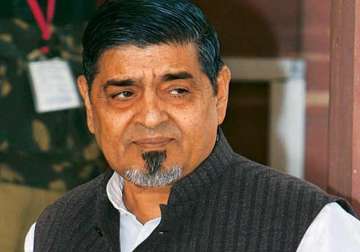New Delhi: Congress leader Jagdish Tytler was today put on trial by a Delhi court which framed defamation charge against him on a complaint filed by a senior advocate representing the victims in the 1984 anti-Sikh riot cases. The court issued notice under provision of CrPC to Tytler saying he had prime facie defamed senior lawyer H S Phoolka, the complainant in the matter, by allegedly making imputations to harm his reputation.
“(You)....intentionally or knowingly or having reasons to believe that imputations made by you will harm the reputation of the complainant (Phoolka) and thus thereby committed offence under section 499 of IPC punishable under section 500 of IPC. Additional Chief Metropolitan Magistrate Gaurav Rao said.
“Show cause why you (Tytler) should not be punished by this court for the above said offence,” the court said. The notice was read over to Tytler to which he pleaded not guilty and claimed trial after which the court fixed the matter for recording of evidence on May 2. Earlier, Tytler had argued in the court that there was no legally admissible evidence to frame charge against him in the defamation complaint.
Tytler's counsel had argued that the complaint was filed by Phoolka regarding alleged defamatory statements made by the Congress leader in a TV news programme aired on September 7, 2004 and there was a long and “inordinate delay” in the proceedings of this matter.
Phoolka's counsel, however, had countered his submissions contending that the complaint, statement of the complainant and other witnesses corroborating it, were enough to frame charge against Tytler in the matter.
In his complaint filed in 2006, Phoolka had alleged that Tytler had levelled “false and derogatory” allegations against him to harm his reputation in the society during the TV debate aired in September 2004.
The complaint against Tytler was filed in a Ludhiana court in Punjab. Later on, it was transferred to Delhi by the Supreme Court on Tytler's plea.
The court had earlier watched the original video of the TV debate which was aired by a private news channel in both English and Hindi.
Tytler had earlier told the court that he was ready to tender “unconditional apology” to Phoolka to settle the matter as no public interest was involved in the complaint filed by an individual.
Phoolka, however, had refused to accept Tytler's offer, saying “any compromise” in a serious matter like this would send a wrong message to the people.
